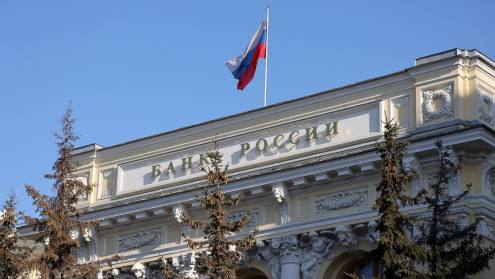It has not been smooth sailing for KBC, the Belgian bancassurer that was formed six years ago from the merger of three Flemish financial groups. Its central European operations, which account for more than a quarter of group equity, have been hit by cripplingly high loan-loss provisions in Poland and an embezzlement scandal in Hungary. For the region’s largest financial institution, with more than E24bn in assets, it has been a humbling experience – but it has no plans to retreat from the region.
Costly hands-off stance
Other big Western investors in central Europe’s banking sector have stumbled, particularly over Poland’s sharp economic slowdown in 2000 to 2002, which led to a severe deterioration in asset quality. But KBC’s woes were exacerbated by a hands-off approach to itsforeign subsidiaries which, according to analysts, permitted management foibles. “Its central European operations could have done with more careful oversight,” says a senior equities analyst in central Europe.
Although granting operational autonomy to local management can smooth foreign takeovers, it can prove costly at small and medium-sized subsidiaries that seek to boost their market share. When Poland’s economy started to falter in 2000, the borrowing binge of the late-1990s came back to haunt lenders, particularly those that grew their balance sheets aggressively, such as Kredyt Bank – Poland’s seventh-largest lender with 6% of the market.
After becoming a strategic investor in Kredyt Bank in 1999, KBC allowed its old management to pursue rapid loan growth while eschewing stringent risk controls. “It [KBC] was just keeping an eye on the big clients and was not involved in the authorisation process at the branch level,” says Jean-Baptiste Bellon, banks analyst at Deutsche Bank.
This led to a management shake-up at Kredyt Bank in January 2003 and a restructuring plan aimed at shoring up its battered balance sheet. Announcing its third-quarter results on November 20, KBC stunned analysts: in the first three quarters of 2003 it had booked E195m in provisions for non-performing loans in Poland and was setting aside a further E155m for the fourth quarter.
Short sharp shock
Its central European operations’ contribution to its consolidated group profit is now negative (-3.2%), compared with 9.7% in the first three quarters of 2002. “We opted for the short but hard pain in 2003 rather than have the process drag on into 2004,” says Andre Bergen, KBC’s deputy group chief executive. Mr Bellon says: “Clearly the main challenge is to turn around Kredyt Bank.”
KBC’s central European operations were further tarnished last year when it emerged that the brokerage unit of K&H Bank was the victim of an elaborate fraud, in which more than $40m was siphoned off from a select group of clients. K&H is Hungary’s second-largest lender, in which KBC has a 59% stake. The scandal led to the arrest of a broker and the bank’s former CEO and has tainted Hungary’s governing Socialists and the main opposition party. It is now being probed by a parliamentary committee.
Mr Bergen claims that it is “a typical case of parallel banking, which can happen in any bank, in any country, at any time”. He insists that K&H is “doing extremely well from an operational point of view”. The contribution of the banking business in Hungary to KBC’s group profit in the first three quarters of 2003 rose by 77%.
KBC has since put its Asia-Pacific manager in charge of K&H to help sort out the mess. It is also, together with ABN-Amro, increasing K&H’s capital by Ft23bn (E87m), partly to cover losses stemming from the fraud. It also recently appointed Marko Voljc, the former head of Slovenia’s Nova Ljubljanska Banka (in which KBC has a 34% stake), as general manager for central Europe.
Despite its troubles, KBC is not retreating from its aim of exporting its bancassurance model to central Europe. It owns a majority stake in Warta, Poland’s second-largest insurer in non-life, and is present in the other insurance markets in the region. “Our objective is to have at least a 10% market share in each country in both banking and insurance, and to have close co-operation between [the two],” says Mr Bergen.
Alluring prospects
KBC points to the alluring growth prospects in post-communist Europe, where insurance premiums and bank deposits, relative to GDP, are 54% and 60% respectively of the EU average (with Poland and Hungary vastly under-penetrated). Although bancassurance has failed to catch on in many EU countries and has faced legal and cultural impediments in central Europe, KBC believes its ‘multi-channel’ concept in Belgium – which is based on co-operation agreements between bank branches and insurance agents – can be replicated in central Europe.
Yet analysts have their doubts. “It all depends on how well it uses the banking franchise to distribute insurance. When Poland reformed its pensions system [in 1999], it was the Western insurance giants, not the banks, that took the lead in selling premiums,” notes one senior equities analyst. And Mr Bellon says: “The contribution of insurance to [KBC’s] group profit is still very small.”
KBC admits that bancassurance in central Europe is in its infancy, but it says that its sizeable market shares in both sectors give it a competitive edge – as long as there are no more unpleasant surprises.











